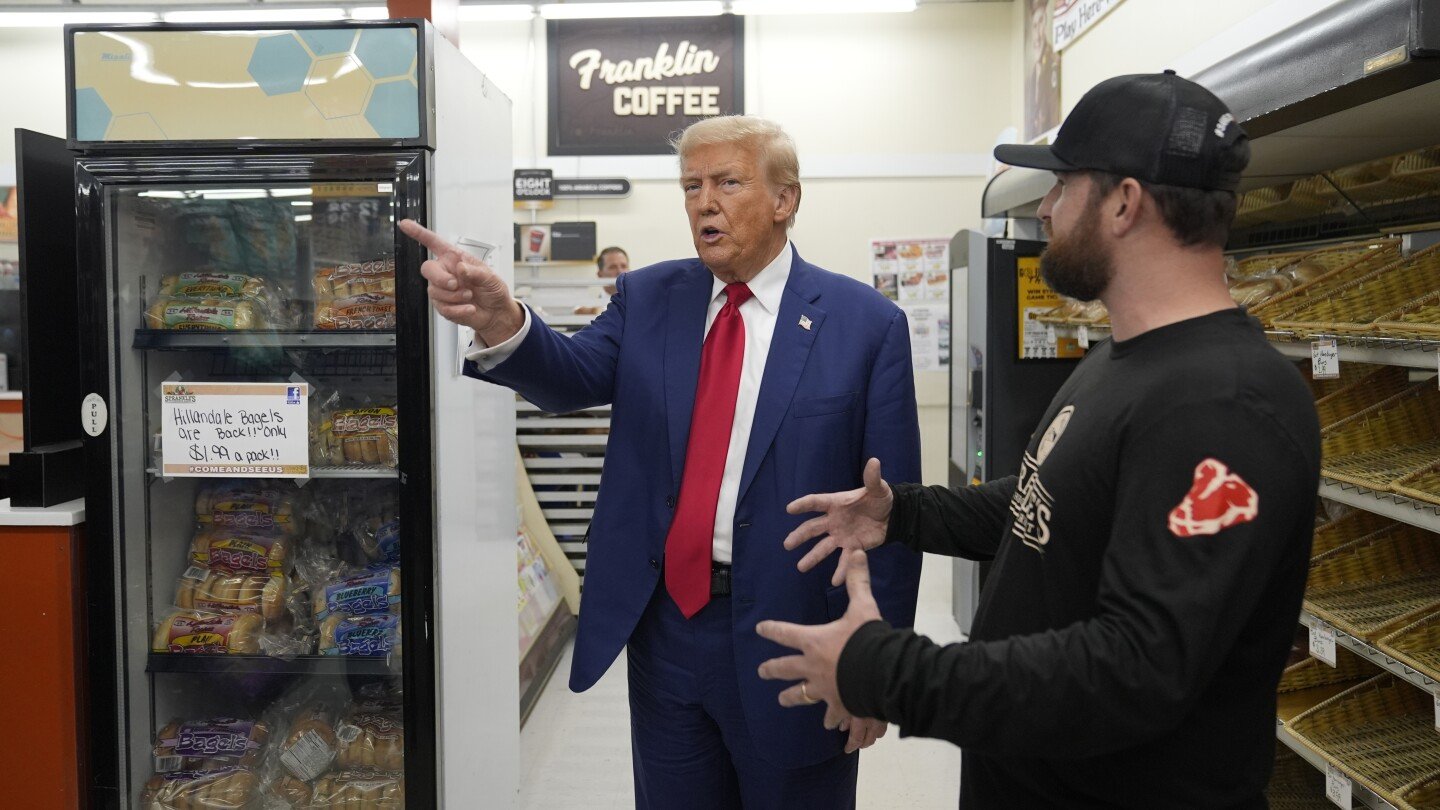- cross-posted to:
- politics
- cross-posted to:
- politics
Summary
Americans, frustrated by high grocery prices, are looking to President-elect Trump for relief. Trump has pledged to lower food costs through tariffs on imports and by reducing energy prices, arguing that these measures would benefit U.S. farmers and consumers.
However, experts warn that tariffs could drive up prices by increasing costs for imported goods essential to food production and risk retaliatory tariffs on U.S. exports.
Economists also doubt Trump’s short-term impact on energy costs, noting that sustained grocery price drops are challenging without major economic shifts.



Let me put it there for those idiots.
Tarrifs on food imports would be great for US farmers because they no longer have to compete with low priced imports, as the cost to import increases. You would induce a shortage at the current price point, resulting in less food avaliable and at a higher price.
Small point - farmers would probably still miss out as resellers and supermarkets take much of the marginal profit.
On the other hand, with all of their workers having been deported, farmers wouldn’t be able to produce anything at all. This is why I want to believe that Republican talk of deportation is just bluster, but I thought that about Roe v. Wade as well.
I think you might be looking at this wrong. Over 20% of agricultural products are exported in the US, less than 15% is imported. Food is a substitution commodity, if you can’t buy one kind, you will buy another.
There is and will be no shortage of food in America. Food grown in central and south America? Maybe. This will just hurt all those farms exporting soy beans when the retaliation comes in to play.
Yes, you are correct but I disagree on few technicalities that make a difference.
products do have substitutes, but you are talking comming down from a global market. Calories are there, but we don’t eat based on calories. You can’t substitute soybeans for tomatoes, potatoes for corn, or many others i don’t have examples for.
when the US starts putting in tarrifs for import, other nation states will likely do the same. Your exports of unwanted goods will no longer be competitive in the global market, leading to an excess of unwanted, cheap food and shortage of wanted, expensive food.
You should look up the last time the US employed massive tariffs in a trade war. Spoilers, it was just before the Great depression.